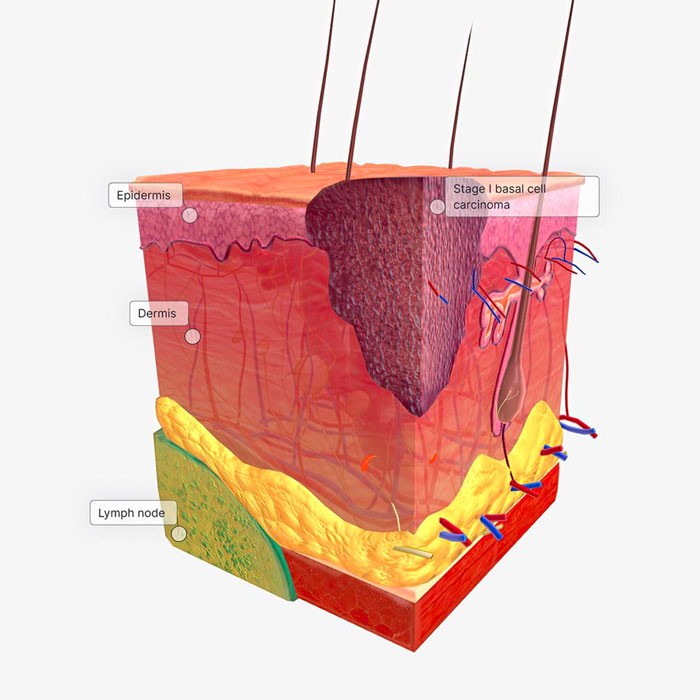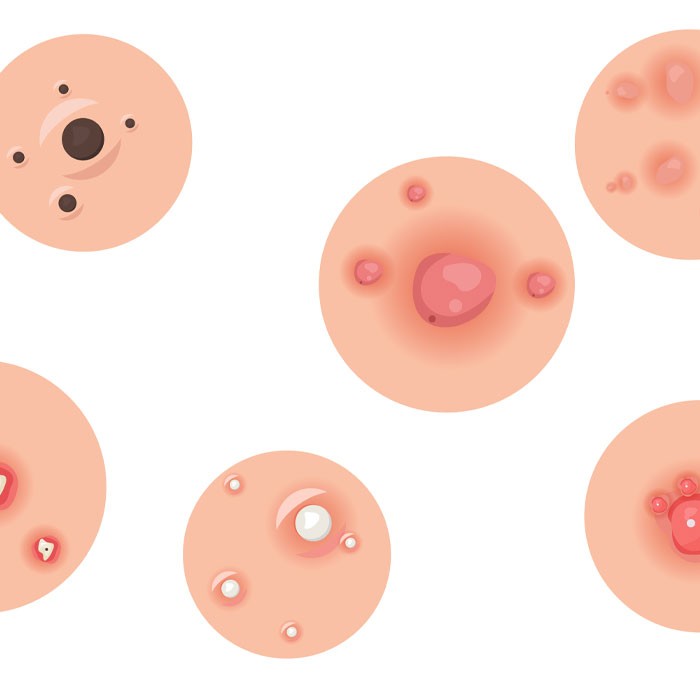7 Jabotinsky st. Moshe Aviv tower, 19th floor. Ramat-Gan
7 Jabotinsky st. Moshe Aviv tower, 19th floor. Ramat-Gan
דף הבית » Early Detection of Basal Cell Carcinoma (BCC) and Squamous Cell Carcinoma (SCC)
Basal Cell Carcinoma (BCC) and Cutaneous Squamous Cell Carcinoma (cSCC) are the most prevalent types of skin cancer. Timely detection and diagnosis of these tumors are crucial for successful treatment and improved outcomes.
Early diagnosis plays a vital role in effectively managing BCC and cSCC. When detected early, these skin cancers can be completely cured using various treatment options. Timely intervention can prevent the tumors from growing deeper into the skin or spreading to adjacent tissue. Moreover, early diagnosis allows for less invasive treatment procedures, better preservation of normal tissue, and improved cosmetic results.


Regular skin self-examination: Conducting regular skin self-examinations is essential for early detection. Individuals should thoroughly examine their skin, paying close attention to any new or changing moles, lesions, or growths. Any suspicious findings should be promptly evaluated by a dermatologist.
Professional skin examinations: Periodic skin examinations conducted by dermatologists are crucial for early detection. These examinations involve a comprehensive assessment of the skin, including areas that are difficult to evaluate independently. Dermoscopy, a non-invasive technique that utilizes a special magnifying tool to reveal small structures within the skin layers, may be employed for more accurate evaluation of suspicious lesions.
Biopsy: If a suspicious lesion is identified during a skin examination, a biopsy can be performed. This procedure involves removing a small sample of the lesion for laboratory analysis, enabling an accurate diagnosis and determination of the specific type and stage of skin cancer.
Changes in skin lesions: Both BCC and cSCC can arise from existing skin lesions or develop as new tumors. Any alteration in the size, shape, color, or texture of a mole, freckle, or other skin lesion should raise concern. The appearance of a new lesion that fails to heal or resolve within a few weeks is also a warning sign.
Non-healing wounds: BCC and cSCC can manifest as non-healing wounds or wounds that persist for an extended period. These wounds may bleed, ooze, or scab over. If a wound does not show improvement or fails to heal within a reasonable timeframe, medical evaluation is necessary.
Irregular borders and surfaces: Skin cancer often exhibits irregular or defined borders. Lesions may also display changes in the surface of the skin, such as ulceration, scaling, or scabbing. Any lesion demonstrating these characteristics should be evaluated as soon as possible.
Rapid growth: BCC and cSCC may exhibit rapid growth, increasing in size over a short span of time. Monitoring the size and growth of any suspicious lesion is crucial. If the lesion grows significantly or undergoes rapid changes, medical treatment is necessary.


Early diagnosis of Basal Cell Carcinoma and Cutaneous Squamous Cell Carcinoma is of utmost importance for achieving successful treatment outcomes. Regular self-examinations, professional skin examinations, and immediate evaluation of any suspicious lesion are essential for early detection. Changes in skin lesions, non-healing wounds, irregular borders and surfaces, and rapid growth are warning signs that should not be ignored. Any suspicious lesion should be evaluated promptly by a specialized dermatologist. By raising awareness and promoting proactive skin health practices, we can enhance early detection rates and ultimately reduce the impact of Basal Cell Carcinoma and Cutaneous Squamous Cell Carcinoma.
If you have located a suspicious lesion on the skin, especially if it is unusual, new or recently changed, contact a dermatologist as soon as possible in order to diagnose the lesion and decide on further treatment.
Give us a call or fill in your details and we will get back to you